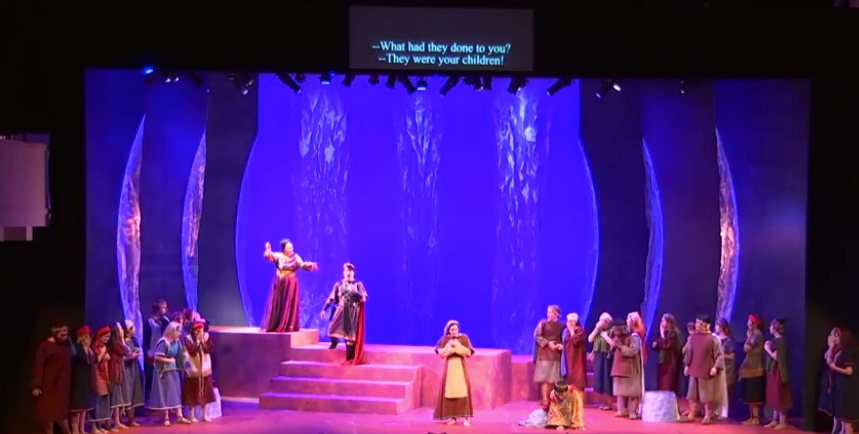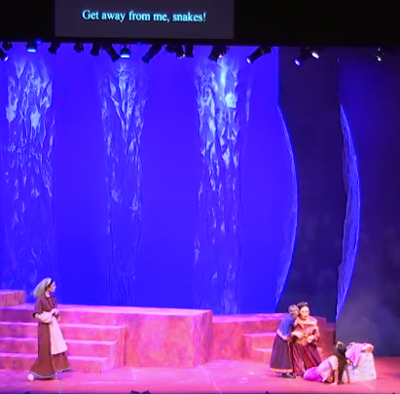by Daniel Hathaway

Compact at just two hours in length and musically solid — Cherubini was admired by his contemporary, Beethoven — Medea was a good choice by stage director David Bamberger for his opera students.
Friday’s cast was notable for the accomplished singing of Nayoung Yeo, the powerful soprano who played a formidable Medea, and Benjamin Liu, the compelling tenor who took the role of Jason. Mezzo-soprano Merav Eldan was a standout as Medea’s servant Neris, and soprano Emily S. Brown distinguished herself as Glauce, the daughter of King Creon — who is engaged to Jason and thus becomes the catalyst for Medea’s rage. Though appearing a bit stiff onstage, bass Xiaoyang Zhang sang the role of Creon with authority.
The CIM Orchestra, led by Harry Davidson, sounded impressive from the first notes of the overture, and contributed increasingly ominous music as the story grew darker. An elaborate oboe obbligato by Michael Ripple decorated a first-act chorus, and Neris’s aria at the top of act two was accompanied by a lyrical bassoon solo played by Marisa Esposito. Davidson paced the opera expertly with only a few coordination problems — notably between the stage and the back of house chorus in the second act.
Lorena Jia Tovanche and Ian McLaughlin winningly played Medea’s children, their left-behind dolls almost unbearably symbolizing their fate at the end of the opera.
Dave Brooks’ set remained the same for both acts with subtle changes in lighting between scenes (also by Brooks). Inda Blatch-Geib’s costumes evoked Greco-Roman antiquity. Bamberger’s own supertitles were nicely done.
The chorus, prepared by John Simmons, took its traditional role in Greek drama, and contributed importantly to the production. At the end, to symbolize the end of the world for these tragic characters, the chorus all fell dead to the stage at once. A dramatic conclusion to a gripping opera.
Published on ClevelandClassical.com November 21, 2017.
Click here for a printable copy of this article




